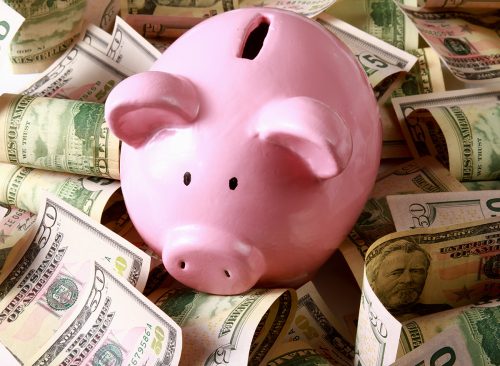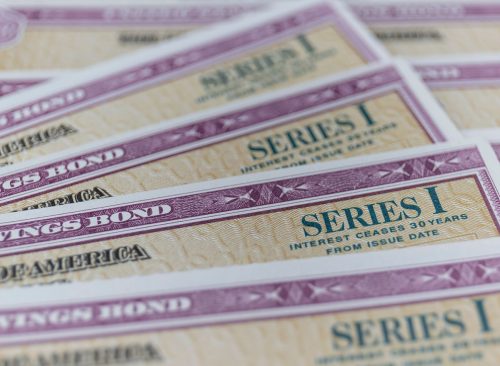The 12 Best Ways to Make Your Money Grow, According to Your Income Level
Make your money grow.

Inflation has cooled, the stock market is performing better than last year, interest rates remain high, and the American financial picture remains uncertain. But isn’t it always? No matter where the economy is trending this month or how much income you’re bringing in, you can take easy steps to maximize your net worth. These are the best ways to make your money grow at any income level in 2023, according to the experts.

If you’re carrying balances on credit cards with high interest rates—experts recommend paying down your debt, starting with the highest interest rate first. Interest rates are higher than ever, and parking cash in a high-yield savings account, where it may earn 5% interest, won’t help your money grow if you have debt that’s accruing interest charges at four, five or six times that amount.

If you can afford to put a little money in savings each month, work on building up your emergency fund. Experts advise saving six months to one year of expenses in case of emergencies. (Homeowners should save a little more for unexpected bills.) Choose a high-yield savings account. “High-yield savings accounts are the best places for emergency savings because they allow easy withdrawals,” the Wall Street Journal says.

Because of the Fed’s series of interest-rate hikes, certificates of deposit (CDs) have once again become an attractive way to grow your money. Right now, some short-term CDs will allow you to lock in interest rates above 5% for six months to a year. (You must keep your money in the CD for the full term to avoid early withdrawal penalties). These can help you save for short-term goals like holiday gifts, a vacation, or the down payment on a new car, the Journal suggests.

If you’re able to save several hundred dollars a month, and you feel good about your amount of emergency savings, having more than one high-yield savings account, each one dedicated to a specific financial goal, can incentivize you to keep saving.

If you have one month of expenses in your checking account, adequate emergency savings, and you have accessible funds for unexpected expenses, it may be time to grow your money outside of savings. “Keeping all of your money in savings isn’t a strategy for wealth building because the interest gained on high-yield accounts likely won’t outpace inflation in the long run, Kyle McBrien, a certified financial planner at Betterment, told the Journal. The average yield on a six-month Treasury bill is 5.3%, higher than most high-yield savings accounts. You can invest in one Treasury bill, then reinvest in another one once it matures (say, every six months).

“The top ways to grow your wealth are really simple, almost deceptively so,” self-made millionaire Ramit Sethi told CNBC in July. “And they seem boring, but they are the ones that actually work.” First, invest a percentage of your income automatically. Every year, increase that percentage by 1%, he says.

Invest regularly in a low-cost index fund that tracks the S&P 500, Sethi advises. “We often believe that rich people have access to secret investments, and that’s how they make a ton of money,” he says. “I have access to those investments, and I can tell you right now, they typically do not perform better than a simple S&P index fund.” Between January 1926 and June 2023, the S&P 500 index has posted an annualized total return of 10.34%. “With that batting average, you could potentially double your bankroll in about seven years,” certified public accountant James Allen told CBS News last month.

Investing a set amount into the market regularly is called dollar-cost averaging, and financial experts from Warren Buffett to Suze Orman and beyond have advised doing this with index funds as a reliable way to grow your money. Invest when the market is down, and you earn when it comes up. Make regular contributions, even when the market dips, and you’ll still come out with gains in the long run. “When it comes to success in investing, it’s not about timing the market. It’s about time in the market,” certified financial planner Taylor Wilson told CNN.

If your employer offers to match your 401(k) contributions, make sure you’re contributing to the max. Otherwise, you’re leaving free money on the table—money that can grow via investments for years or decades.

Real estate investment trusts (or REITs) are run by companies that own (and often operate) income-generating real estate. You can invest in REITs via individual stocks, index funds, and ETFs. According to NerdWallet, REITs often produce high returns, and they’re required to pay dividends to their investors, which can produce a steady stream of income.

A Series I bond, also known as an I bond, is designed to protect you from inflation. It earns interest in two ways: a fixed interest rate and a variable rate that adjusts to the level of inflation every six months. If you have sufficient savings, I bonds could be a long-term investment strategy to consider (just know that they can’t be cashed in for 12 months, and if they’re cashed in before five years, you’re charged the last three months of interest). One big advantage: They’re exempt from state and local taxes.
RELATED: Surprising Signs You’ve Already Had COVID

What if you have no money for investments? “If you really want to increase your earnings, consider starting a business on the side,” says Sethi. For example, you could rent out your home on Airbnb; pet sit through Rover; get a gig as an AI content assistant; or apply to become a notary public, CNBC suggests.














